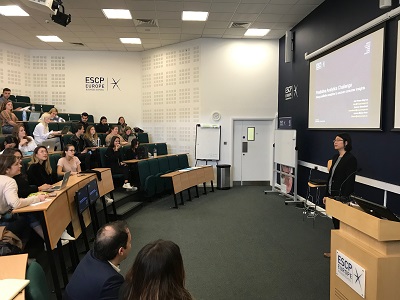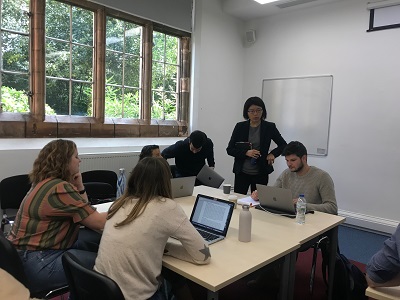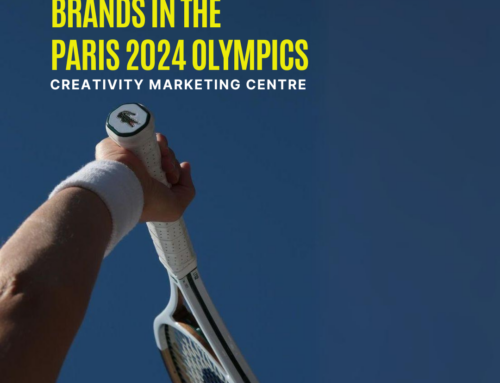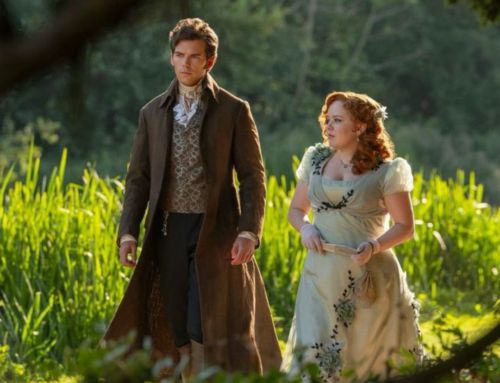Creative Predictive Analytics Challenge: How Can Your Data Make an Impact?

Last month, ESCP Business School’s Associate Professor Dr Hsin-Hsuan Meg Lee kicked-off a one-week project in collaboration with Dr Lorena Blasco-Arcas, Academic Director of the MSc in Marketing & Digital Media (MDM), and Dr Kamran Razmdoost, Co-Director of the MSc in Marketing & Creativity. They asked 72 students from both programmes to predict the winner of this year’s Eurovision Song Contest.
The results were truly fascinating: out of 15 teams, 9 correctly predicted the winner by implementing creativity on both qualitative and quantitative insights. Here is how they did it!

2019 Eurovision Song Contest
This year’s contest took place in Tel Aviv, with 41 countries participating but only 26 nations going through to the grand final. Due to their financial contribution towards this international event, the “big five” (the UK, France, Germany, Italy and Spain) and host country Israel automatically classified. All remaining entrants competed at two semi-finals. The contest attracts around 182 million viewers and has often been notorious for geopolitical voting bias. More information is available here.
The Challenge

Dr Kamran Razmdoost emphasised that, “Prediction is now an embedded component of strategic marketing in any industry, including media and entertainment, the focal sector for this exercise. Students need to evaluate how Eurovision contestants perform. The main challenge is not to build the most sophisticated predictive model, but to understand the reasons behind singers’ success. This may include identifying and creatively assessing why audiences and experts vote for a performance. The challenge is then to find ways to measure or represent those insights in the final analysis.”
The teams had to:
- Identify key performance indicators
- Take data from a variety of sources, including social media
- Build the predictive models
- Predict the final ranking
- Choose a country and analyse its audience
What you need to know
Students analysed different variables such as the Hofstede cultural index, historical data, social mentions, voting blocs, performance vote, behaviour proxies (e.g. consumer expenditure on leisure activities), and Google searches by country per year. Their strategy also incorporated social media engagement (e.g. YouTube) and music streaming platforms such as Spotify.
The coaching sessions
 Dr Lorena Blasco-Arcas explained how the coaching sessions went:
Dr Lorena Blasco-Arcas explained how the coaching sessions went:
“The sessions were very intense and dynamic. We devoted most of the day to group work, and the coaches were rotating around the classrooms in order to give advice to all groups. It was very inspiring seeing how students engaged with the activity. Some of them did not know the Eurovision Song Contest, so first of all they needed to familiarise themselves with the event in order to understand better which factors to include in their final predictions. It was quite interesting to see how they developed their thinking by incorporating different data sources and insight sin the process.”

The Winning teams
What were the results?
Participants received three prizes:
1. Best Prediction Award
2. Eurovision Expert Award
3. Most Creative Predictive Model Award
Dr Hsin-Hsuan Meg Lee announced the winning teams at the end of the exercise.
- Best Prediction Award: Team E5
Members: Wariyaporn Ittipatcharapong (MMK), Giridhar Venkatraman (MMK), Blanca Herranz-Mañas (MDM) and Marie Zarzavatdjian (MDM) - Eurovision Expert Award: Team F3
Members: Caren Abdul Hak (MMK), Nicole Morasco (MMK), Anastasiia Prokhorenko (MMK), Tiphaine Couteaux (MDM) and Jan Hermanns (MDM) - Most Creative Predictive Model Award – Team F1
Members: Rita Benhayoune Jalfi (MMK), Alexia Danton (MMK), Felicia Ivarsson (MMK) and Maya Makarem (MDM) and Leonor Dos Reis Mendes De Lima Raposo (MDM)
 Dr Meg Lee said: “I’m impressed with the students’ intuition in trying to build a model on their own, instead of just taking the predictions from the public media. The teams that outperformed others are those who managed to creatively translate the qualitative insights of the voters into quantifiable attributes. I hope that through this challenge, the students experienced that predictive analytics is not just about critical thinking: it also takes creativity.”
Dr Meg Lee said: “I’m impressed with the students’ intuition in trying to build a model on their own, instead of just taking the predictions from the public media. The teams that outperformed others are those who managed to creatively translate the qualitative insights of the voters into quantifiable attributes. I hope that through this challenge, the students experienced that predictive analytics is not just about critical thinking: it also takes creativity.”
As mentioned, 9 out of 15 teams successfully predicted the winner would be Duncan Laurence, who represented the Netherlands with ‘Arcade’: https://youtu.be/R3D-r4ogr7s.
These are the proven keys to success:
- Pay special attention to the brief! It may sound obvious but a great brief reveals a lot regarding what is at stake
- Define the problem
- Establish the key variables implementing creativity through the whole exercise
- Identify your personas: Who is actually voting? What do they like?
- Select the right data that supports the variables
- Analyse and enrich the data
- Build models for predictive analysis
- Experiment the model and applied the analytics
How did you come up with the best prediction?
Giridhar Venkatraman (MMK student) explained: “For this project, we looked at the historical data from 1998 onwards. Some of the variables considered were voting blocs: what are the patterns that identify the profile of the voting public. We calculated the fair play and bias. We also looked at Spotify because we wanted to see the performance of the songs themselves, and there we could see patterns emerging that we could put together in our formula.”
How creative can you be with the elements you use to predict?
Felicia Ivarsson (MMK student) said: “We looked at things such as VPN and thematic content; then we found sources to quantify it and run an analysis. It was interesting to analyse all entrants from the musical perspective. It was fun to take a risk analysing the songs and the lyrics. The overall exercise was a great success.”
How to use qualitative analytics to uncover consumer insights?
Tiphaine Couteaux (MDM student): “We looked into the market and found four types of customers. We considered the percentage of those customers, thereby predicting the whole audience. We took these percentages into account and predicted how each particular segment would vote, and how their vote would be presented and proportionally influence the final result.”
If marketers and pioneering thinkers are to overcome the challenges that arise in the digital age, they must be tasked to successfully combine creativity, marketing, analytics, technology and management. This fascinating real-world exercise gave students the tools needed to deal with a full range of businesses scenarios and build a successful career in today’s business environment.
ESCP Business School and its CMC would like to congratulate the winning teams on their impressive performance.
Interested in becoming a manager who understands how to implement creativity in marketing analytics? Check out how ESCP Business School‘s programmes will equip you with the tools you’ll need!
***
Useful links
About the MSc in Marketing & Creativity
About the MSc in Marketing & Digital Media
About the Creative London Summer School





